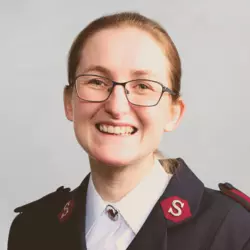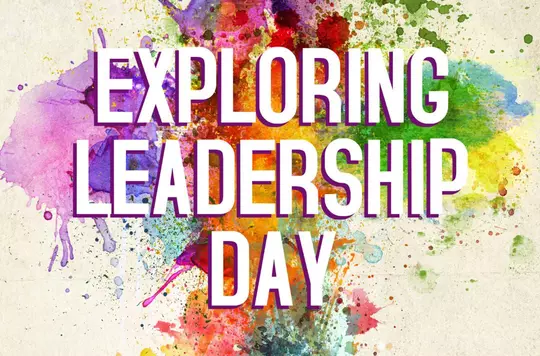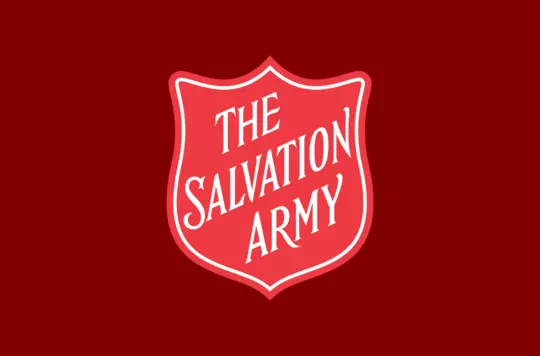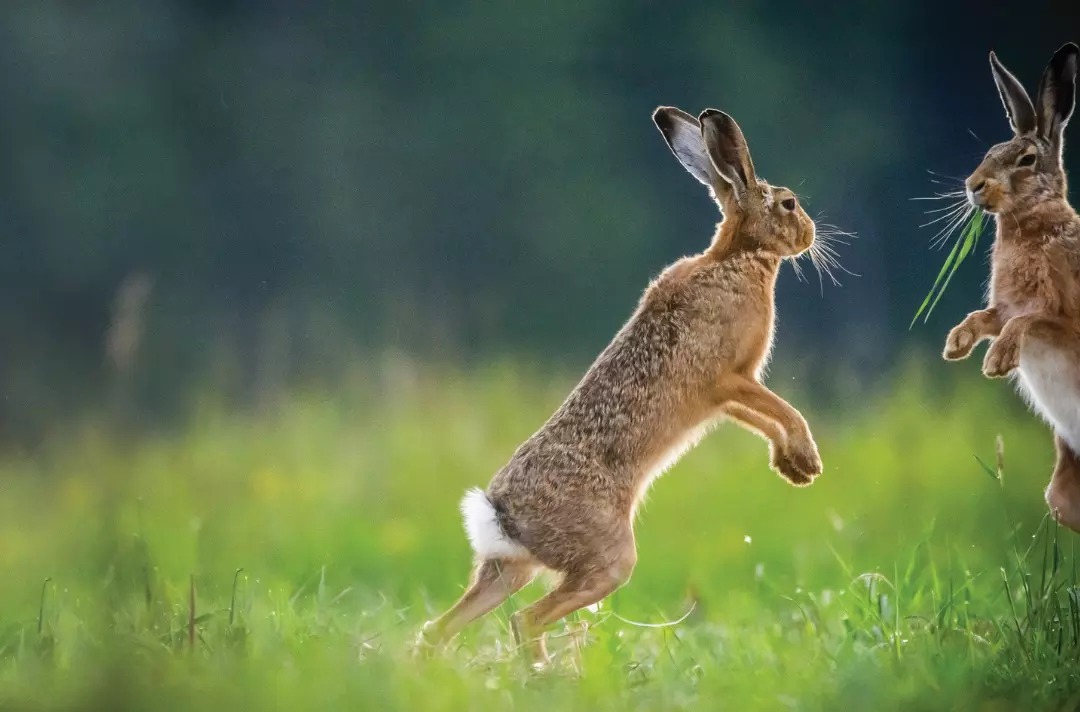13 March 2023
Love one another: How can we demonstrate our love?
Captain Naomi Clifton
Captain Naomi Clifton reminds us to take responsibility for doing what we can with the skills and abilities we have.
Key text
In the beloved children’s picture book Guess How Much I Love You, Little Nutbrown Hare and Big Nutbrown Hare try to express how much they love each other. Little Nutbrown Hare begins by stretching out his arms to say ‘I love you this much!’ but Big Nutbrown Hare has even bigger arms. They try to outdo each other with bigger and bigger descriptions of their love for the other, until finally Big Nutbrown Hare whispers to the sleeping Little Nutbrown Hare the famous words: ‘I love you to the moon and back.’
Our study passage reminds us that, to really show how much we love each other, we need to express our love through practical action in the midst of everyday life. Writing to the fledgling Christian community at Thessalonica, Paul begins by reminding them: ‘You yourselves have been taught by God to love each other’ (v9).
We learn what it is to love one another as we experience God’s own love for us (see 1 John 4:10). We are the recipients of his sacrificial love in action through the death and resurrection of Jesus Christ (see John 3:16, Romans 5:8 and 1 John 3:16). We also learn from the example and teaching of Jesus, for example his humility in washing his disciples’ feet (see John 13:1–11) and his command to love one another (see John 13:34 and 35).
Love is not something we can generate on our own but is a gift from God that he pours into our hearts through the Holy Spirit (see Romans 5:5). It is God himself who enables us to love one another.
Pause and reflect
- Think of a time when God taught you to love others. How did this happen?
- What changed?
It is said that William Booth, when he was told of good work happening, would say to his son, Bramwell: ‘That and better will do!’ Paul encourages believers at Thessalonica in a similar way.
He celebrates the way that the Thessalonians already demonstrated their love for one another. He writes: ‘In fact, you do love all of God’s family throughout Macedonia.’ And continues: ‘We urge you, brothers and sisters, to do so more and more’ (v10). That and better will do! Similarly, in our own journey of discipleship, it is important to consider how we celebrate the ways in which we love one another but to also think how we press on to love even more.
Pause and reflect
- Are there particular people in your corps family you find difficult to love?
- What specific actions could you take to show love for them?
Underpinning Paul’s call to love one another is his firm belief that Christian believers have been adopted into God’s family. This makes them ‘brothers and sisters’. Here he refers to their place in ‘God’s family’ to spur them in their practical demonstration of that love.
As members of one spiritual family, they were obligated to provide for one another and share their resources. This wasn’t just restricted to their community of Christian believers, but extended to ‘God’s family throughout Macedonia’ and even beyond.
The believers in Thessalonica didn’t keep their demonstrations of love local; they had demonstrated their love for their Christian family throughout the region.
It’s likely that this involved financial generosity to Christian brothers and sisters they did not know personally. This reminds me of the Self-Denial Appeal that many Salvationists in the United Kingdom and Ireland Territory – and around the world – will have sacrificially given to in recent weeks.
As I read Paul’s call to love one another ‘more and more’, I’m challenged to think about how we can actively demonstrate our love for our Salvationist brothers and sisters around the world throughout the year.
The sense that we are part of a ‘family of believers’ (Galatians 6:10) runs throughout Paul’s writings in the New Testament. He explores this concept in greater depth in passages such as Romans 8:14–17 and Ephesians 2:11–22.
Pause and reflect
- Who do you think of when you picture the ‘family of believers’?
- Are there people we often forget?
Sadly, when love is missing from Christian communities, gossip and judgement can easily take root. Paul, however, encourages his readers to ‘make it your ambition to lead a quiet life’ and ‘mind your own business’. He teaches believers to ‘work with your hands, just as we told you … so that you will not be dependent on anybody’ (vv11 and 12).
Mutual love for one another does not abuse the generosity of others. Rather, when we love each other, we take responsibility for doing what we can with the skills and abilities we have. What this looks like will, of course, vary depending on our circumstances and opportunities but we all have something to contribute to the family of faith. Such a distinctive way of living ‘may win the respect of outsiders’ (v12). In the same way that Jesus promises that ‘everyone will know that you are my disciples, if you love one another’ (John 13:35), Paul assures us that a life shaped by love will positively influence those outside the Church.
Pause and reflect
- What might people outside your fellowship think about the way you treat one another?
Showing love through action as we love one another ‘more and more’ will enrich our own lives and the lives of those around us, both in and out of the family of faith. May God bless us with abundant love for others.
Bible study by

Captain Naomi Clifton
Corps Officer, Blackpool Citadel
Discover more

Cadet Adam Barber explains how Exploring Leadership Day helped confirm his calling.

Bethany Gibson introduces the new station for everyone linked to The Salvation Army.

Lynette Kakande (Gateshead) and Eli Clifton (Maidstone) sum up this year’s Self-Denial Appeal.

Resources to help transform our hearts this Lent, including material for Palm Sunday.
